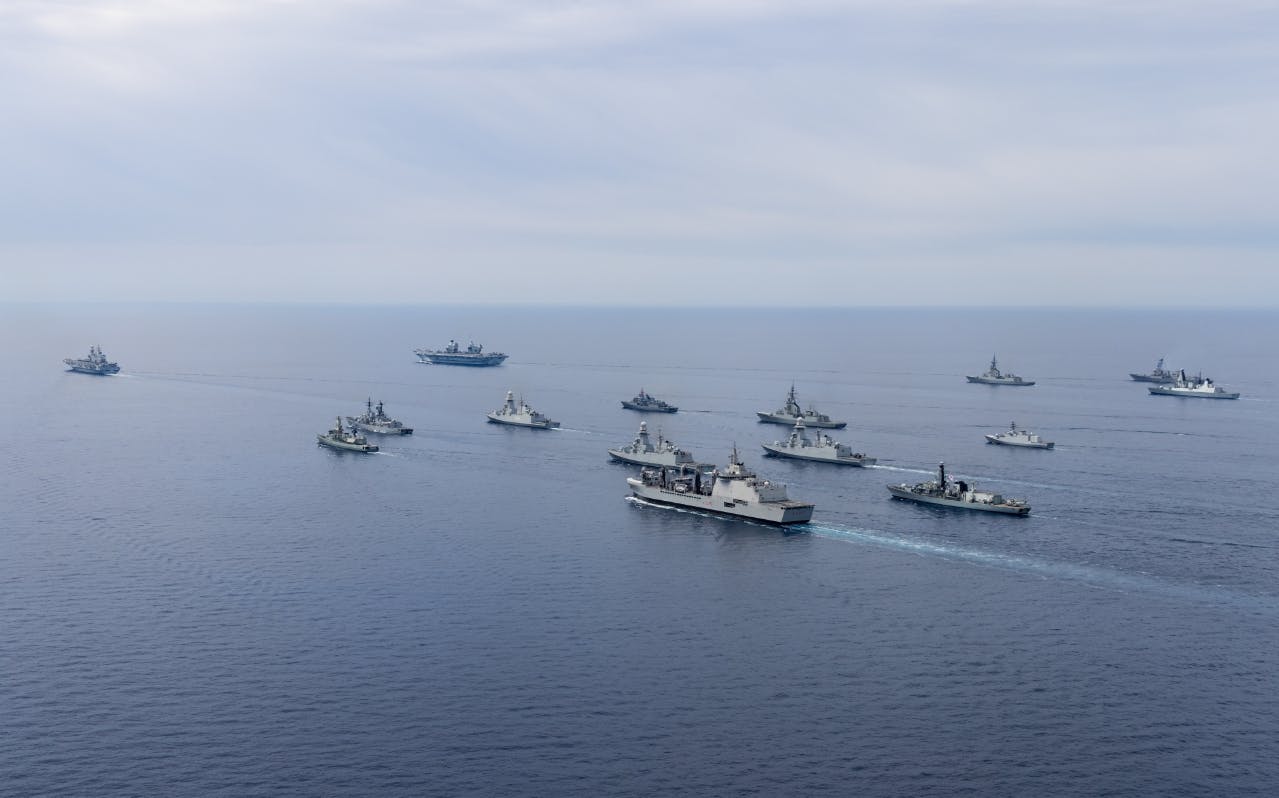Speaking to the Defence Committee, Radakin was asked by Derek Twigg MP whether there were concerns about NATO’s resilience in a high-casualty conflict or its ability to replenish losses. The Chief of the Defence Staff firmly rejected that characterisation.
“I don’t tend to, genuinely don’t tend to subscribe to that anxiety, because we are so extraordinarily strong compared to our principal threat, Russia,” he said.
“And the question, which is difficult to answer in public, but that you should be asking people like me, is: if we were to get into a war with Russia, how quickly could we get control of the air? Because if you have sufficient control of the air, then your ability to put at risk a nation—and especially a nation’s economy—is very, very strong.”
Radakin argued that sea control would similarly come quickly for NATO, allowing the Alliance to deny Russia freedom of movement and project power with confidence.
“How quickly can we have control of the sea? And again, that ability to have control of the sea—for NATO—is phenomenal.”
He went on to describe a fundamental shift in NATO doctrine over recent years, away from reactive defence and towards proactive deterrence.
“The piece that has changed in the last few years in terms of NATO and a stronger NATO that has got clearer plans, is no longer a NATO that thinks, ‘If Russia was to invade and to gain a piece of territory, how do we then fight to get that territory back?’”
“It’s a NATO that sees the risk of territory being invaded, and [asks] how quickly can it get its land forces in there to block any risk of aggression and territory being grabbed. And again, I feel incredibly confident that that’s what NATO’s got, and that’s how NATO can keep its citizens safe.”
Addressing the assumption that a conflict with Russia would resemble the long, attritional nature of Ukraine’s current struggle, Radakin said:
“I think the risk with the thinking of, if you go to war with Russia, right, you’re then in a long war, and that actually you’re now going to have this protracted war, and you’re going to need the relief for casualties in the way that Ukraine has suffered—that is not how we would fight. And we need to be really confident of our phenomenal overmatch.”
“It’s the overmatch that deters Russia. And I have never been clearer than any time in my career about the success that NATO is having in deterring Russia.”
“Russia does not want to fight with NATO, and Russia does not want a nuclear war, and we should be really confident of that. We’ve got a dangerous, malevolent Russia, and we need to maintain that advantage—and the best way of maintaining that advantage is for all of us to get a bit stronger with the USA.”
Later in the hearing, Twigg posed a follow-up question: what if the United States “withdrew either entirely or in part, their contribution to NATO or their presence here in Europe”? Could Europe still stand on its own?
Radakin replied: “I think Europe is strong enough because of its strategic depth. So 500 million people, incredible economies—but I reject the premise.”
He added that in his experience accompanying the Defence Secretary in meetings with the U.S. Secretary of Defense, there was no indication of any wavering commitment.
“We have been fortunate to have the clarity from America that America is sticking with NATO.”
Referring to the recent nomination of the next Supreme Allied Commander Europe (SACEUR), Radakin said: “That should give you reassurance that America is sticking alongside the Alliance.”
He closed by reiterating the critical importance of U.S. strategic support, especially in the nuclear domain.
“The American conversation is a frankness. And the frankness is: America is going to continue to provide all of us in Europe with the nuclear significant change. And that’s why you’re seeing Europe responding.”
Radakin’s remarks will be interpreted as both a reassurance to allies and a signal of intent to adversaries, NATO, he emphasised, is not only unified but structured to win swiftly in the event of war.
